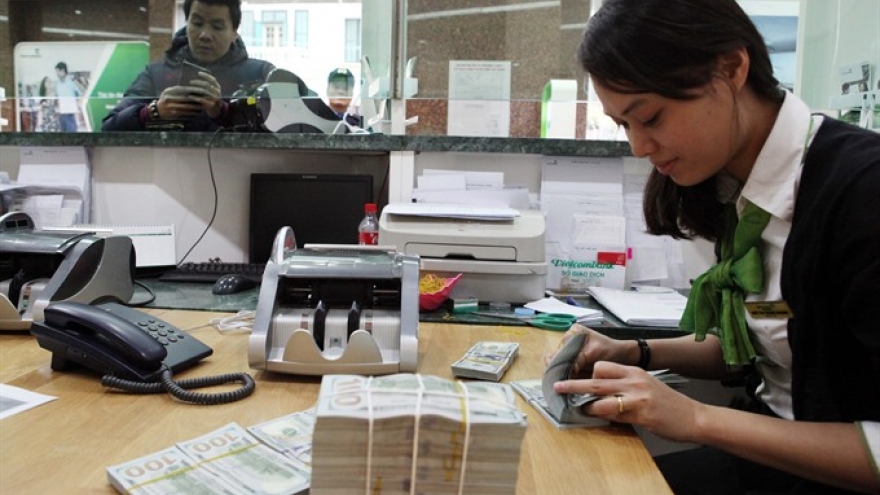HCM City looks to further capitalise on overseas remittances
Ho Chi Minh City attracts the largest amount of overseas remittances among all cities and provinces in Vietnam, and it is working on how to optimise this source of capital.
 |
Remittances to the southern economic hub increased by 10 – 15% per year from 1993 to 2015, totalling more than US$50 billion so far. They account for nearly 50% of the total remittances to Vietnam every year and make the city the top remittance destination in the country, said Nguyen Hoang Minh, Deputy Director of the HCM City branch of the State Bank of Vietnam.
In the first nine months of 2016, remittances through official channels to HCM City approximated US$3.25 billion, rising by 4% from a year earlier. The amount for the fourth quarter is expected at US$2.4 – 2.5 billion, adding up to the whole year’s figure of US$5.7 – 5.8 billion.
Most of the money was channelled into production, business and investment activities. More than 80% of the remittance-sourced credit was provided for production and business activities, while another 13% was given to the real estate sector.
The US, Europe, Australia and Canada remain the biggest remittance sources aside from the key markets for Vietnamese guest workers such as Taiwan (China), Japan, Malaysia and the Republic of Korea.
Experts said HCM City’s strong economic recovery compared to other localities is the reason that helps the city draws remittances.
Banks based in HCM City predict overseas remittances to this locality, as well as Vietnam, will grow at an even faster pace in the near future thanks to positive signals in the economy, especially in production, real estate, finance and the stock market.
Most of overseas remittances to Vietnam are sent by 4.5 million expatriates living and working in more than 100 countries and territories around the globe.
Experts said overseas remittances are an important source of foreign currency that can help the city reduce dependence on foreign capital. They also add to capital supplies for financial institutions.
Assoc. Prof. and Dr Nguyen Thi Nhung at the Banking University of HCM City perceived that overseas Vietnamese enterprises are looking for business opportunities in the homeland with a view to simultaneously earning profit and fostering the country’s economic growth.
Nguyen Huu Tai, an expatriate businessman, said in the past, those companies usually invested in finance, stock market and real estate in Vietnam. Now they have switched their attention to other spheres such as producing specialties and agricultural products so as to take advantage of free trade agreements Vietnam has inked.
To improve remittance attraction and use effectiveness, state management agencies should encourage overseas Vietnamese firms to invest in the prioritised sectors such as high technology and support industries, he suggested.
Echoing this view, Pham Ngoc Hung, Vice Chairman of the HCM City Business Association, said the city should direct the remittance flow to projects with high technology and knowledge, which are in need in HCM City.
The municipal administration should also create favourable policies on entry and exit, house ownership and investment registration in order to facilitate overseas Vietnamese’ business activities, he added.
Overseas remittances can be a solution to the capital shortage faced by small and medium-sized enterprises (SMEs), according to Do Thu Hang from the Banking University of HCM City.
She called on state management agencies to design policies promoting remittance-based microfinance products and SMEs’ access to these products.
Meanwhile, commercial banks and money transfer companies should proactively solicit remittances and expand relevant services, said Assoc. Prof. and Dr Nguyen Van Lich at the Diplomatic Academy of Vietnam.
He suggested the Ministry of Planning and Investment have a division specialising in remittance promotion and provide incentives for remittance-funded investment projects.

